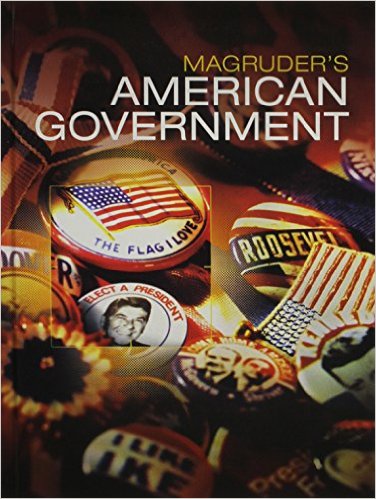
Magruder’s American Government
1st Edition
ISBN: 9780133306996
Textbook solutions
All Solutions
Section 6-3: The Independent Agencies
Exercise 1
Step 1
1 of 3
Since most independent agencies, whose members are bipartisan, have an independent status and are based on statutory, they do not have to rely on the governmental parties or work with them. However, special interest groups sometimes mark the agencies that the Congress located outside of the Cabinet departments to try to influence them.
Step 2
2 of 3
Generally, the relationship between partisan politics and independent agencies is and should be neutral. **The agencies** have their **processes and statutory requirements that are not dependent on or biased to follow partisan politics**. Furthermore, they impose their regulations that are free of partisan and political influence.
Result
3 of 3
The **relationship between partisan politics and independent agencies is neutral**, or at least should be. Because the agencies are set up to operate without any political influence or be dependent on partisan politics.
Exercise 2
Step 1
1 of 2
All of the *independent agencies* are **tasked with administering regulations** that concern their area. **Members** of the independent agencies are **not elected**. All of the **independent agencies are created by Congress** and are **not dependent on the executive departments**.
Result
2 of 2
Members of the independent agencies are not elected and enforce regulations that are not dependent on political influence.
Exercise 3
Step 1
1 of 2
The **Office of Personnel Management** is an independent agency that serves the American people by **managing the Federal government’s civil service**. Civil service employs about 2.8 million people, and the OPM administers them through job offers, background checks, education of the civil helpers, et cetera. The OPM is the federal personnel policy manager and assists the Federal agencies to achieve their goals to serve the people.
Result
2 of 2
The Office of Personnel Management helps the federal bureaucracy by administering and managing the bureaucracies personnel to assist it in achieving goals and serving the people.
Exercise 4
Step 1
1 of 3
The **Independent Regulatory Commissions** are **independent and out of reach of the presidential regulation and control.** Congress purposefully structured them to be independent. In this way, they are an exception to checks and balances, and the separation of powers. Even though the president appoints the commission members, which the Senate then confirms, there is a certain level of control when the president decides who he is going to put in powerful positions. Moreover, their role is to regulate aspects of the national economy.
Step 2
2 of 3
What makes them an exception is that **their powers are considered to fall in the executive branch**. They have the legal ability of administration. Still, their commissions are free from political influence. Altogether it makes them an exception to the separation of powers and checks and balances.
Result
3 of 3
The IRC, structured by Congress, is considered to be a part of the executive branch, however, the president does not control them. Despite them not being controlled and still having some executive powers makes them an exception to checks and balances and the separation of powers.
Exercise 5
Step 1
1 of 2
**Congress** usually **creates the government corporations** where the economy demands it. It aims to accommodate public service in the market where the market does not cover it. Congress sets them up out of the business interest. Congress also funds the corporations for them to produce revenue that, hopefully, meets its expenditures. It is in Congress’s interest to assist and create beneficial governmental corporations because they are meant for the public service.
Result
2 of 2
**Congress creates, sponsors, and acquires governmental corporations** to serve the public.
unlock

